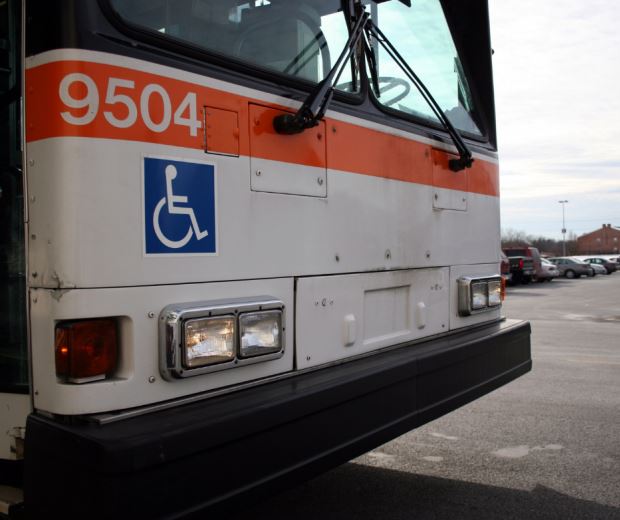
Miami-Dade Transit Bus Involved in Fatal Head-On Crash with SUV in the Keys
According to the Monroe County Police Department, a Miami-Dade Transit bus was involved in a fatal head-on crash that left a section of Card Sound Road closed on Monday evening. Police officials had to shut down the road between Miami-Dade and Monroe while the crash was investigated. Drivers were asked to avoid the area altogether as the road was not reopened until nearly 9 p.m. on Monday. The accident occurred near Card Sound Road between Miami-Dade and Monroe County just south of the toll plaza in Key Largo around 4:30 p.m. on Monday. The accident was caused when a Miami-Dade Transit bus and an SUV were in a head on collision. The Florida Highway Patrol and Monroe County Police Department were the first to respond to the scene of the crash. Police
officials say that while there were no passengers in the bus at the time of the accident, they confirmed that one person was killed in the accident. No further details were released.
Were You or a Loved One Injured in an Accident Involving a Common Carrier? Because buses have a high center of gravity and typically carry unrestrained passengers, bus accidents can be disastrous, resulting in catastrophic injuries and unnecessary deaths. If you or a loved one were injured in an accident involving a bus, you may be entitled to compensation for your losses. This is generally true whether you are a passenger, a pedestrian, motorcyclist or bicyclist, or the driver or passengers of another vehicle hit by a bus.
What is a Common Carrier?
In Florida, all types of buses including private buses, public transit buses, school buses, tour buses, or other types of commercial passenger buses are known as “common carriers”. A common carrier has been defined as a carrier which represents that it is engaged in the business of transporting persons or property for compensation, and whose services are offered to the general public. The privilege to operate common carriers can be acquired only by governmental permit, license or franchise. The distinctive characteristic of a common carrier is that it undertakes to carry all people indifferently. In addition to buses, the term “common carrier” for public transportation purposes also includes railroads, airplanes, taxicabs, cruise ships, and ambulance services. In order for a common carrier to operate, they must adhere to certain industry-specific regulations implemented to protect the general public. The law recognizes that a special relationship is created once a common carrier accepts a passenger for transportation. In this regard, common carriers owe a heightened duty of care to passengers and the general public. This special relationship imposes upon the common carrier the duty to exercise the highest degree of care for the safety of its passengers. A common carrier owes its passengers the highest degree of care and vigilance for their safety consistent with the mode of transportation in the general operation of the carrier’s business. The rule applies to all phases of the carrier’s relations with its passengers, including when the passenger is entering or leaving the form of transportation provided by the carrier. The high degree of care imposed on a common carrier with respect to the safety of its passengers does not extend, however, to the point of making the carrier an absolute insurer of the safety of its passengers. The carrier is not required to place a guard over passengers and deliver them to their destination safely, or keep them safe from harm, under any and all circumstances. Some negligent act on the part of the carrier or its employee must be shown in order to give rise to a cause of action for injuries sustained by a passenger.
In an action against a common carrier for personal injury to a passenger allegedly caused by the common carrier’s negligence, the plaintiff has the burden of proof to establish a prima facie case of negligence by a preponderance of the evidence. Negligence is the failure to use reasonable care. The reasonable care required of a common carrier is different from the reasonable care required of a passenger. The reasonable care required of a common carrier for the safety of a passenger is the highest degree of care that is consistent with the type of transportation used and the practical operation of the business of a common carrier of passengers. Negligence of a common carrier is doing something that a very careful person would not do under like circumstances or failing to do something that a very careful person would do under like circumstances. Additionally, a common carrier is liable for the negligent acts of its employees acting within the scope of their employment and can also be liable for the tortious acts of its employees since a passenger is entitled to protection against violence, abuse or assault by the agents of the carrier, even though such acts may be unauthorized by the carrier. Finally, a common carrier cannot relieve itself of responsibility by contract, or even limit its liability, for injuries to passengers resulting from its negligence where it has received compensation for carrying the passenger.
Difference Between Private Carrier and Common Carrier: Where a common carrier will carry all persons or property indifferently, a private carrier is generally one who undertakes transportation of a person or property as incident to other business. Thus, while a private carrier may make individualized decisions in particular cases as to whether and on what terms to serve, a common carrier will not. Depending on the circumstances, personal injury claims arising out of an accident involving a bus which is owned and operated by a municipality may be limited by Florida laws providing for sovereign immunity. However, claims for personal injury or wrongful death arising out of an accident involving a privately-owned bus are not ordinarily subject to such restrictions.
If you or a loved one has suffered injuries or death in a motor vehicle accident involving a common carrier, you may have a right to seek compensation for your losses. The Law Offices of Suarez & Montero Car Accident Attorneys is a personal injury law firm with locations in Miami and Broward. To discuss how we can assist you, call us or contact us online. We encourage you to learn more about and the successes our attorneys have had on behalf of individuals and families who have suffered serious personal injury in accidents involving common carriers.
We serve clients throughout Florida including those in the following areas:
Miami-Dade: Aventura, Coral Gables, Doral, Fontainebleau, Hialeah, Homestead, Kendall, Miami, Miami Beach, Miami Lakes, North Miami, Tamiami, and Westchester.
Broward: Fort Lauderdale, Hallandale Beach, Hollywood, Pembroke Pines, and Weston; and Palm Beach County including Boca Raton, Lake Worth, and West Palm Beach.





